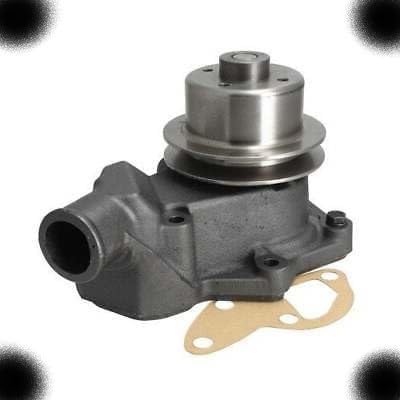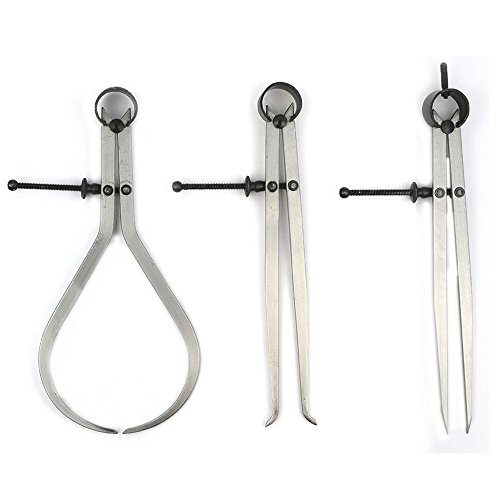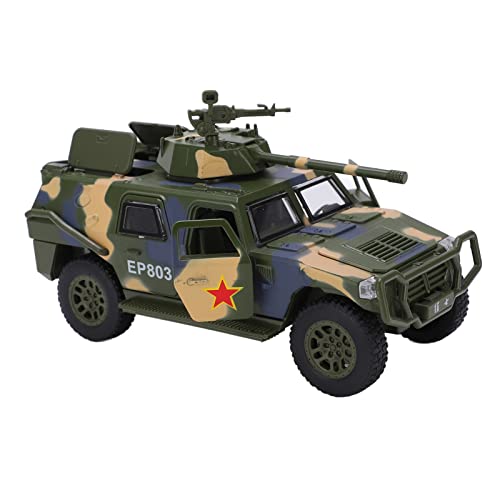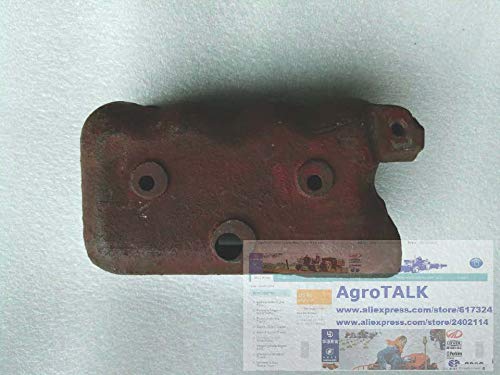Would ‘lard oil’ be used for skin cream? I think ‘e45’ is lanolin and paraffin based.Doug.
You are using an out of date browser. It may not display this or other websites correctly.
You should upgrade or use an alternative browser.
You should upgrade or use an alternative browser.
Problems with Steel
- Thread starter Roskrow
- Start date

Help Support Home Model Engine Machinist Forum:
This site may earn a commission from merchant affiliate
links, including eBay, Amazon, and others.
goldstar31
Well-Known Member
Lanolin-IFIRC is the 'suint' from a sweep's fleece. 'Paraffin' is a mineral base whilst lard is the rendering of fat. I'm keeping out of things which resulted on the Indian Mutiny and the Black Hole of Calcutta but refined lard oil and tallow( here we go again) are excellent for tapping and lard oil was what the old engineers mixed for cutting fluids.
Here we go again, you get to the saponification of fatty acids which start resin technology-- and err hand soaps.
One thing that I can tell you is using lard oil you end with nice soft hands.
Swarfega- I guess has glycerine in. Back to LOFA and paint technology.
Hey- mind you I'm neither engineer nor chemist but merely a 'retired 'bean counter'
Other people may hold different views.
I'm a shareholder in a rather interesting pharmaceutical firm which had its origins in selling soap as liver pills. Seemingly there is a connection with conducting classical music
I'll get me coat
Here we go again, you get to the saponification of fatty acids which start resin technology-- and err hand soaps.
One thing that I can tell you is using lard oil you end with nice soft hands.
Swarfega- I guess has glycerine in. Back to LOFA and paint technology.
Hey- mind you I'm neither engineer nor chemist but merely a 'retired 'bean counter'
Other people may hold different views.
I'm a shareholder in a rather interesting pharmaceutical firm which had its origins in selling soap as liver pills. Seemingly there is a connection with conducting classical music
I'll get me coat
Hi Terry,
Second point first - four facet drills - I agree 100%. The best aspect of the four facet form is that the chisel point of the normal twist drill is changed to a true point and so there is no need for the use of a centre punch
Your first point ("Always start with a centre punch Mark") I would qualify by adding "if accuracy is not important"
All these things are relative, of course, but the centre punch is the work of the Devil and the tool of the blacksmith - it has no place in precision work. Think of the sequence followed when marking, centre punching and drilling a precisely located hole:
Step one) Mark hole location - there will obviously be a tolerance/error in the measurements and marking, so the marked location will not be the truly intended location of the hole.
Step two) Locate centre punch in crossed scribed lines (which we know already have an error) and introduce Mr Hammer in to the equation. There are three possible results:
1) The resulting punch mark will be perfectly placed on the line intersect.
2) The punch mark will be miss placed, but by an amazing stroke of luck the error in the dot location perfectly cancels the error in the marking out
3) The punch mark will be miss placed and add further error to the error in the scribed lines
Let's be honest - 1 and 2 will not happen and you now have a centre mark even further from the desired location.
Now the centre mark crater - this could in theory be a perfect conical depression, but in reality is asymmetrical and so will push the drill slightly off the punched centre. Situations 1, 2 and 3 above apply again, and as a result the actual drilled hole location is even further away from its intended place.
Centre punching ok if you are drilling holes in gate hinges.
Al the best,
Ia
‘Sweep’s fleece?Lanolin-IFIRC is the 'suint' from a sweep's fleece. 'Paraffin' is a mineral base whilst lard is the rendering of fat. I'm keeping out of things which resulted on the Indian Mutiny and the Black Hole of Calcutta but refined lard oil and tallow( here we go again) are excellent for tapping and lard oil was what the old engineers mixed for cutting fluids.
Here we go again, you get to the saponification of fatty acids which start resin technology-- and err hand soaps.
One thing that I can tell you is using lard oil you end with nice soft hands.
Swarfega- I guess has glycerine in. Back to LOFA and paint technology.
Hey- mind you I'm neither engineer nor chemist but merely a 'retired 'bean counter'
Other people may hold different views.
I'm a shareholder in a rather interesting pharmaceutical firm which had its origins in selling soap as liver pills. Seemingly there is a connection with conducting classical music
I'll get me coat
Ian, thanks for posting this and your four facet sharpening jig plans. As a new member I appriciate the information as sufficent to guide additional research. Your coment prompted me to do a search on four facet and now I have yet another project to make a tool so I can make something. I also noted Norman's comment on the similarity of the four facet grind and how endmills and slotdrills are ground. I made a very recent purchase of a Darex E-90 end mill sharpener. Though the stone is rather coarse looking, specification not provided in the factory liturature, and limited to Hardinge 5C collet sizes, I'm wondering if the 1/4" it came equiped with as a pilot would cover most needs . . .Hi Terry,
Second point first - four facet drills - I agree 100%. The best aspect of the four facet form is that the chisel point of the normal twist drill is changed to a true point and so there is no need for the use of a centre punch
. . .
Ron
goldstar31
Well-Known Member
‘Sweep’s fleece?
Bah!
Called Macular Degeneration
Thanks , perhaps there will never be another you?

$443.98
TM NEXDYNAMI AT29618 Water Pump Compatible With/Replacement For John Deere 1020 1520 2020 300 301 400 401 440 440A 480 AT29618
VIVID MARKET CORPORATION

$109.99
AmTech300 - Boiler Treatment Professional Strength (Rust Inhibitor For Outdoor Wood Boilers)
Alternative Heating & Supplies

$39.99
$49.99
Sunnytech Low Temperature Stirling Engine Motor Steam Heat Education Model Toy Kit For mechanical skills (LT001)
stirlingtechonline

$40.02
$49.99
Becker CAD 12 3D - professional CAD software for 2D + 3D design and modelling - for 3 PCs - 100% compatible with AutoCAD
momox Shop

$99.99
AHS Outdoor Wood Boiler Yearly Maintenance Kit with Water Treatment - ProTech 300 & Test Kit
Alternative Heating & Supplies

$188.98
TM NEXDYNAMI RE41157 Water Pump Compatible With/Replacement For/John Deere 6200 7400 6300 6600 6500 6400 7220 7600 7200 RE41157
VIVID MARKET CORPORATION

$426.53
DM14 Engine Build Kit, Metal Engine Build Model Great Metal Material for Engineer for Factory
Easoger Official

$94.99
$109.99
AHS Woodmaster 4400 Maintenance Kit for Outdoor Wood Boiler Treatment
Alternative Heating & Supplies

$160.35 ($1.43 / oz)
Replacement Combustion Chamber Kit, Burnham V8 and V8H, 1-6 Sec, 108136-01, 1129
Plumbing Planet

$649.00
$699.00
FoxAlien Masuter Pro CNC Router Machine, Upgraded 3-Axis Engraving All-Metal Milling Machine for Wood Acrylic MDF Nylon Carving Cutting
FoxAlien Official
![DreamPlan Home Design and Landscaping Software Free for Windows [PC Download]](https://m.media-amazon.com/images/I/51kvZH2dVLL._SL500_.jpg)
$0.00
DreamPlan Home Design and Landscaping Software Free for Windows [PC Download]
Amazon.com Services LLC
The reason that you get non-round (roughly reuleaux-triange shaped, actually) holes when you try to drill sheet metal with a 2-flute drill, is because it's energetically favorable for one cutting lip to "dig in" and stop, while the other cutting lip pivots around the stationary one, cutting a 2x-drill-diameter arc, as compared to both cutting lips to cut at the same time. The moving lip then catches and the formerly stationary lip starts cutting, and the drill walks around a 3-lobed path, alternately sticking and cutting.
The reason that drilling into a piece of wood (or at least a reasonably solid one) creates rounder holes, is because the drill is no-longer supported at "only one point" along the length of the flute - even if one lip tries to dig in to the wood, that flute describes some portion of a spiral along its length into the wood, so it does not form a distinct pivot point like the drill biting into sheet metal does.
One working hypothesis about the "use a bit of cloth between the drill and sheet metal" process, is that the cloth naturally wedges itself into the flutes, filling them up and limiting the depth of chip that each cutting lip can grab - kind of like the action of rakers on a chainsaw chain.
Willray, I have also used wood as a backing and before that, I have used a piece of cloth under the drill bit, I just fold a small piece into a small square place it between the metal and the drill bit,
Edmund...........Alberta
terryd
Well-Known Member
Heaven knows why but I don't but my son wants to restore a left hand Citroen Deux Chevaux.
Ok, I did a English City and Guilds when I was a Manure student and got distinctions and became a Certified Welder( note the Malapropism)! Ah well!
What I used to remove spot welds and to make a hole for 'plug welding' using my Mig welder was a spt welding removing drill. They are pretty hard bits- and not unduly expensive.
Of course there is the usual prattle about work hardening but today's -- or possibly yesterday's high strength alloyed steels instead of the traditional phosphorus mild steel. Of course these niobium steels did not work harden under the oxy acetylene torch but cracked.
Thoughts for the day? Well I DID say that I wasn't an engineer
Norman
A few years ago, before I retired, I had to repair a stripped thread in a mild steel bracket. Drilling out to the next size up, M10 x M12, the tap felt as though it would break, drilling to maximum tapping size, new tap, threading compound, oil, nothing made any difference. My friend, a toolmaker gave me a pot of ‘cream’ his late mother had for a skin condition, ‘ e45’ I think?
I tried it, it was like tapping into butter. I’ve used it for drilling and tapping threads into stainless steel as well. Apparently ‘Swarfega’ handcleaner works well for drilling into hard steel and stainless. I keep what’s left in the pot for machining operations in difficult materials.
Doug.
Hi Doug,
The toolmakers I worked with used naturall occuring lubricant when drilling small holes - spittle.
Hi Norman,
perhaps the malapropism explains all the BullSh**
TerryD
E 45 is mostly Lanolin, I think? Lanolin is the natural grease made by sheep that keeps the fleece waterproof. My Aunt, a lifelong nurse, loved to find a bit of wolf in a hedge or on a fence and rub it on her hands, so the skin could benefit from the lanolin.
For thread cutting, I bought a pot of someone's elixir, only to find it was dentists' green denture/tooth polish! But really good for taps and dies, and the tough drilling task.
But the best remedy for any drilling difficulty is a sharp drill, correctly ground. And started with a machine located centre from using just the first mm or 1/ 20th inch from a centre drill, or spot drill. My mistake for decades was to use a centre drill until the second diameter struck metal, but much better if you have just the starting cone touch metal as a lead for the proper drill, as I have recently learned. But please teach me more! An interesting thread!
K
For thread cutting, I bought a pot of someone's elixir, only to find it was dentists' green denture/tooth polish! But really good for taps and dies, and the tough drilling task.
But the best remedy for any drilling difficulty is a sharp drill, correctly ground. And started with a machine located centre from using just the first mm or 1/ 20th inch from a centre drill, or spot drill. My mistake for decades was to use a centre drill until the second diameter struck metal, but much better if you have just the starting cone touch metal as a lead for the proper drill, as I have recently learned. But please teach me more! An interesting thread!
K
goldstar31
Well-Known Member
My Aunt, a lifelong nurse, loved to find a bit of wolf in a hedge or on a fence and rub it on her hands, so the skin could benefit from the lanolin.
K
A wolf in sheep's clothing? Actually, wolf's hair is hollow as is Arctic Dog. The hair doesn't freeze at sub -zero temperatures-- or so I was informed when I went out to Arctic Norway on a Nordic Nation's Winter Survival course. Not all model engineering.
goldstar31
Well-Known Member
I'd forgotten. My late wife bought a reindeer rug up in the Cairngorms. Presumably it was from the Mikkel Utsi herd. All very emotive stuff- the Clearances after Culloden- and sheep etc etc. We had a wee Bhutt and Bhen.
Funny old World
Funny old World
Lanolin from wolf hair? I think the typo was meant to say “wool”. Although maybe the wolf was in sheep’s clothing?
goldstar31
Well-Known Member
Lanolin from wolf hair? I think the typo was meant to say “wool”. Although maybe the wolf was in sheep’s clothing?
Oh Deer! See 52. Well when we had our place in the Cairngorms, there was the legend of the Wolf of Badenoch. Son and his pal from uni at Cambridge went up to run a nearby campsite ran the campshop with a new product---- Bambi Burgers!
I HAVE FIGURED THAT IT IS THE PREDICTIVE TEXT ON THIS WEBSITE. As an "old codger", (let it try and make "fool" out of those letters!) I have been a few weeks on this site and can't get used to the fact that the machine changes words I type correctly, and though it highlights spelling/typos that it can't manage so I can make corrections - or my computer interrupts with an advert as has already happened once in this message, causing me to type when the screen is somewhere else! - it doesn't tell me when it has changed "wool" into "wolf"! - The "f" isn't anywhere near the sheep's clothing, so it wasn't my fingers that did that one.
I reckon predictive text isn't appropriate to a technical site, where people can talk honestly about nipples (for lubrication), *******s (for files and cuts) rubber hose (for a flexible connection for transporting fluids), bores (Engineers like me who prattle on all day) - etc.
Sorry for confusion - or glad you enjoyed the laughs - whichever is appropriate.
K
I reckon predictive text isn't appropriate to a technical site, where people can talk honestly about nipples (for lubrication), *******s (for files and cuts) rubber hose (for a flexible connection for transporting fluids), bores (Engineers like me who prattle on all day) - etc.
Sorry for confusion - or glad you enjoyed the laughs - whichever is appropriate.
K
goldstar31
Well-Known Member
Ken
We are experiencing some parlous events and it was welcome fun as an alternative.
I have been in lockdown mostly alome since FEBRUARY-- and understandably, somewhat pee-ed off.
more power to your elbow
Regards
Norman
We are experiencing some parlous events and it was welcome fun as an alternative.
I have been in lockdown mostly alome since FEBRUARY-- and understandably, somewhat pee-ed off.
more power to your elbow
Regards
Norman
Cogsy
Well-Known Member
What computer are you using? There is no default predictive text on this forum for me (though there is a spellcheck). If you're using a PC then your browser is providing the predictive text and it's likely an add-on that you've installed yourself (even if unintentionally).I HAVE FIGURED THAT IT IS THE PREDICTIVE TEXT ON THIS WEBSITE...[SNIP]...
I reckon predictive text isn't appropriate to a technical site...
goldstar31
Well-Known Member
My 'goof' was because I use an Apple PC but with a Microsoft 'Word' programme.
Certainly nothing to do with the matters here
My 'serious' views on the occurrence. I also hit appalling and singularly ignorant knowledge of English 'English'.
Somewhat rudely, I utter the useless words 'Bugger off, my English WAS better than yours'
Certainly nothing to do with the matters here
My 'serious' views on the occurrence. I also hit appalling and singularly ignorant knowledge of English 'English'.
Somewhat rudely, I utter the useless words 'Bugger off, my English WAS better than yours'
BaronJ
Grumpy Old Git.
Hi Guys,
I've turned off predictive text in Firefox, the browser I use ! I do have spell checking but its a one click request, then everything that the computer decides is not correct shows up in red ! So you either change it or ignore it. Though I do find that highlighting UK spelling for American ones annoying.
I've turned off predictive text in Firefox, the browser I use ! I do have spell checking but its a one click request, then everything that the computer decides is not correct shows up in red ! So you either change it or ignore it. Though I do find that highlighting UK spelling for American ones annoying.
Firefox has half a dozen different English dictionaries, if it isn't there, download one for the UK.I've turned off predictive text in Firefox, the browser I use ! I do have spell checking but its a one click request, then everything that the computer decides is not correct shows up in red ! So you either change it or ignore it. Though I do find that highlighting UK spelling for American ones annoying.
- Joined
- Oct 1, 2010
- Messages
- 1,395
- Reaction score
- 425
More on the spell-check. Ignore if you want.
In one of the early versions of Word, my wife's name "Debbie" kept being changed to "debauchery."
--ShopShoe
In one of the early versions of Word, my wife's name "Debbie" kept being changed to "debauchery."
--ShopShoe
Similar threads
- Replies
- 0
- Views
- 481

























































![MeshMagic 3D Free 3D Modeling Software [Download]](https://m.media-amazon.com/images/I/B1U+p8ewjGS._SL500_.png)